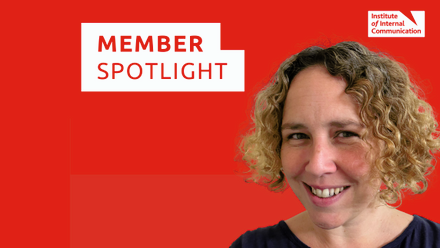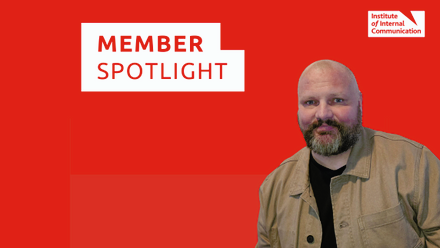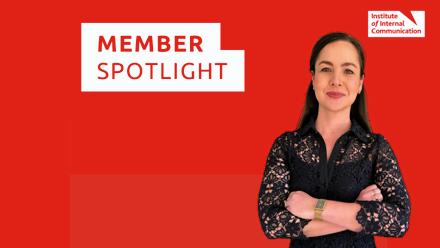About a year ago, I told a friend that I was interested in moving from academia to the consulting world. "Have you ever considered a career in Employee Engagement or Internal Communications?" he asked. Although he was doing his pilot training in the Royal Navy, he previously worked in IC in Dubai. He told me stories of building models of projects with Lego among many more fun, creative ways to communicate and connect with people.
"Sounds interesting! I can't say I know a lot about it, but it sounds up my street!"
"It's 100% what you should go into with a background in Anthropology. You'd be wasted staring at spreadsheets all day. It's a way to really use your training with things like culture and organisational structure, patterns, etc. Tell you the truth, if I wasn't doing my pilot training in the Navy, I'd go back to it in a heartbeat. In fact, scarlettabbott (who I now work for!) is exactly who you should be working for."
Not long before that, I completed my PhD in Social Anthropology, worked as a Teaching Fellow, and won two university-wide teaching awards at one of the world's Top 20 universities. My success in teaching was founded on the rapport I built with my students, putting myself in their shoes and trying to understand their world, their concerns, their hopes and needs. You might even say I did the best I could to take an anthropological approach to student life, instead of keeping at arms' length with detached and inaccurate assumptions about my students.
Following that conversation with my pilot friend, I took flight myself and left academia to begin a career in Internal Communications and Employee Engagement. Now some of you may be wondering what the heck that is in the first place, but there are two key strands here: communicating and mediating relationships and information within an organisation and taking an active role in shaping the work experience that people have in their respective organisations.
For anyone that has studied business anthropology, organisational anthropology, or economic anthropology, the connections here might be more familiar or obvious.
But to the rest of those who have focused on other branches or topics in anthropology (or other social sciences like sociology), there's a lot in the IC/EE world that makes you a strong applicant and that could make this a great career path for you. Here are some traits that you as an anthropology graduate can bring to the world I now work in:
As anthropologists, we tell stories
At the heart of both every ethnography you've ever read and in your own dissertation research is a story. From masterfully written ethnographies like Philippe Bourgois' In Search of Respect to classics like Clifford Geertz' Balinese cockfight, there is a story told in rich, vivid detail. And in our ethnographies, people's voices are heard, their stories are told, and their worlds come to life. Before theorising or anything else, that's what we do.
Storytellers fit perfectly in the world of IC. As IC practitioners, we listen to the stories of our colleagues and clients, and we share those stories within the organisation. We connect people throughout the organisation who aren't always connected in their day-to-day work, and we help leaders understand the experiences of people's day-to-day.
Empathy is at the heart of what we do
My job as an IC/EE Consultant is really about making people's worlds of work better. So much of this comes through understanding what my clients and their stakeholders need. With that comes empathy, suspending my own assumptions and putting myself in their shoes.
This shouldn't be at all unfamiliar to us as anthropologists. If we're going to hear people's stories, we need to do so empathetically. It isn't about passing our judgment on people but trying to understand their lived reality as fully as possible.
I know that when I taught Economic Anthropology, this emphasis on empathy - on real people's lived experiences and seeing people as more than a number or statistic - was always a resonant theme in our discussions.
As an IC professional, you have an opportunity to understand that story and make it come to life for your audiences. You have the opportunity to be that mediator that gives a fuller, more vivid picture of people's lives at work beyond numbers.
You have a knack for putting the pieces together
As anthropologists, we push back on that obsession with quantification and reducing people to numbers. While quantitative analysis has its place and can be a useful shortcut to processing information in a busy, fast-paced environment, it often fails to tell the whole story.
I've noted how the vivid, lived details can easily disappear among the numbers. But as anthropologists, we also look at how the pieces fit together, rather than just looking at them independently.
While other disciplines try to isolate a variable in a way that can only be done in a lab setting, we look at how the pieces fit together in the complexity of social life. It's intuitive to us that people's spaces, their social relationships, and forces like power deeply shape and impact their experiences. Those kinds of analysis can easily be overlooked or misunderstood in the business world.
Not only do we have the ability to use thick description as anthropologists, we also have that priceless ability to see the wood for the trees, holding together that tension between the detail and the whole.
That's more and more necessary not just in IC and EE, but leadership in business in general. Holistic thinking is more and more important as leaders also need to be able to understand the business as a whole, not just separate parts.
Again, these are skills that you've started developing as an anthropology student.
Building Bridges
As an anthropologist turned IC/EE practitioner, I think there are tremendous opportunities to build bridges and put our anthropological insight and training to use in a powerful way. To me, IC/EE serves as such an obvious way into the business word. It's something that makes a difference to these businesses, their employees and their day-to-day lived work experiences. There's so much potential here, if only we continue to develop that relationship between IC and anthropology as a powerful partnership.






